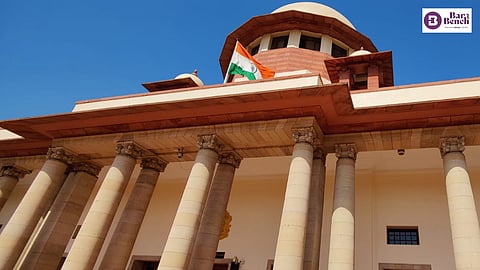
- News
- Columns
- Interviews
- Law Firms
- Apprentice Lawyer
- Legal Jobs
- हिंदी
- ಕನ್ನಡ

The Supreme Court on Thursday directed eight States to submit details about the status of cases of alleged violence against Christians and Christian institutions [Rev. Peter Machado and ors vs Union of India and ors].